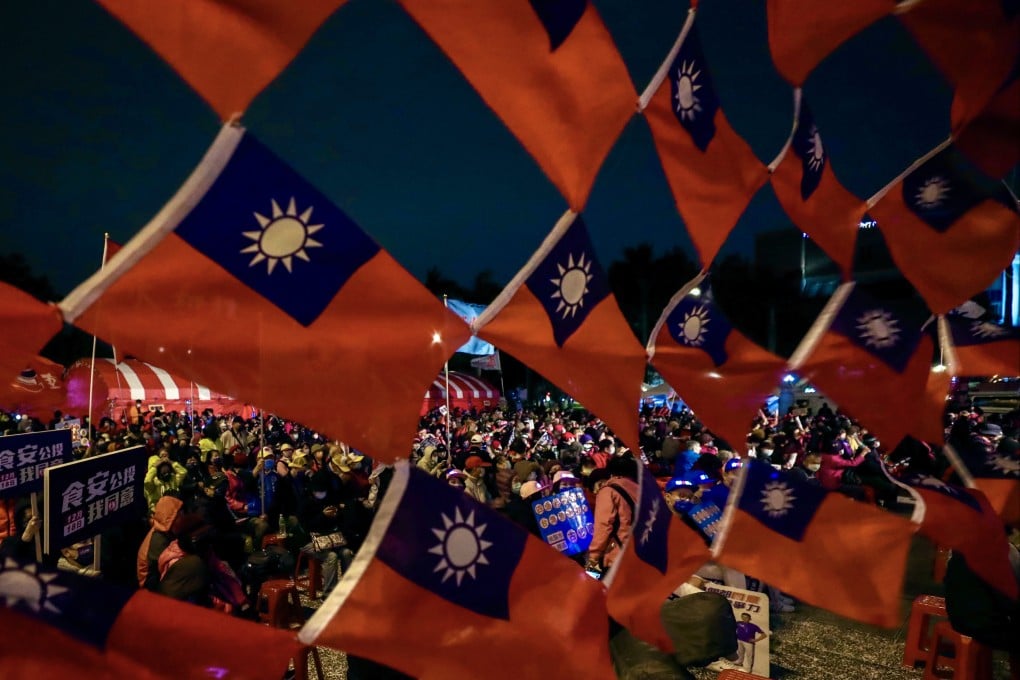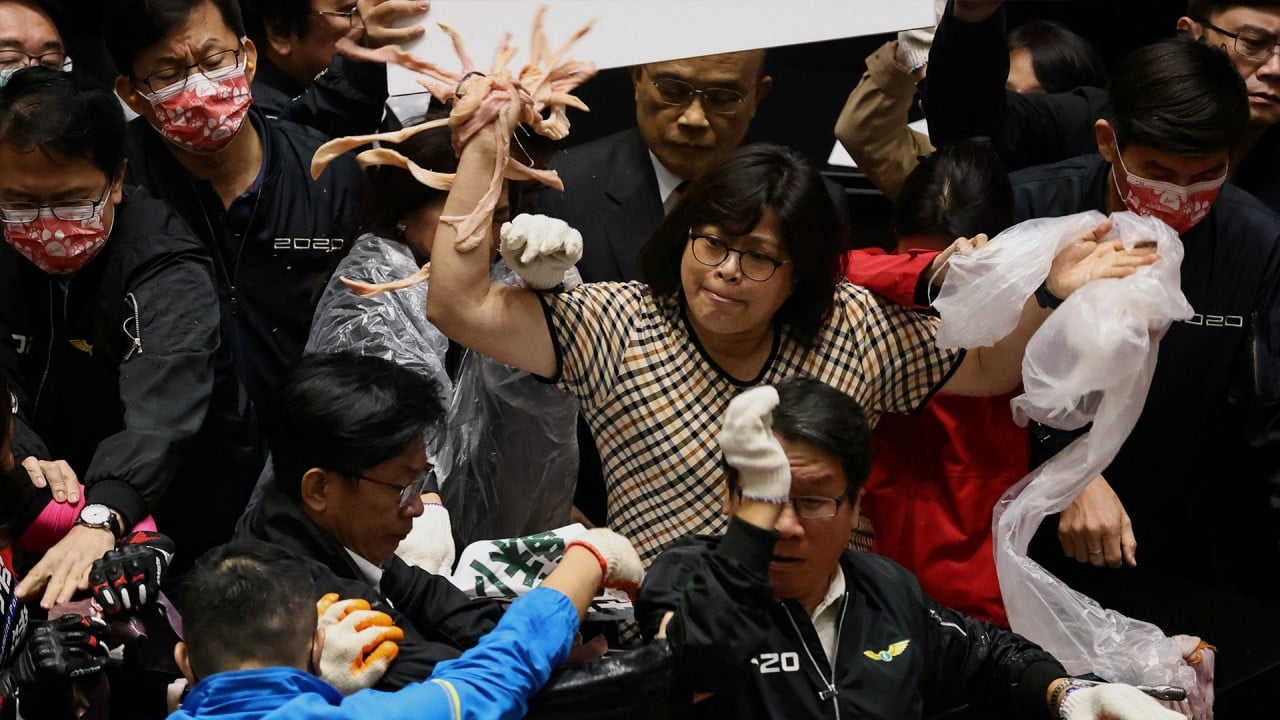Advertisement
Can Taiwan’s opposition KMT regroup after weekend referendum losses to push for power?
- The Kuomintang’s failure to push through changes has been attributed to a lack of party unity
- But the 41 per cent turnout means many neutral voters did not show up to back President Tsai Ing-wen’s position, says academic
Reading Time:3 minutes
Why you can trust SCMP
4

The defeat of Taiwan’s Kuomintang in a weekend referendum has brought into focus the question of whether the main opposition party can make a comeback in 2024, or if Beijing will have to continue to deal with the independence-leaning Democratic Progressive Party.
The KMT suffered a substantial setback on Saturday after the island’s voters rejected four referendum proposals it had championed as a potential show of no confidence in the DPP.
The mainland-friendly party had hoped to use the referendum to boost its chances in next year’s local government elections. Various opinion surveys predicted the KMT had a chance of success because more voters were dissatisfied with the four government trade and energy policies put to a vote by the KMT and two civic groups.
Beijing, which considers Taiwan its territory that must be taken under control, by force if necessary, favours the KMT returning to power because the party has more conciliatory cross-strait policies than the DPP.
The KMT asked the electorate to vote in favour of its proposal to reinstate a ban lifted in January by Taiwanese President Tsai Ing-wen on the import of United States pork treated with the food additive ractopamine.
Advertisement
